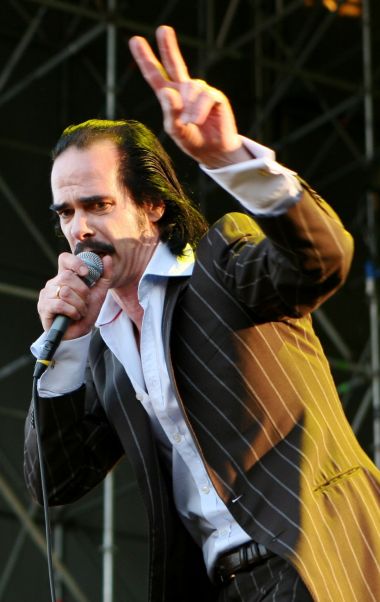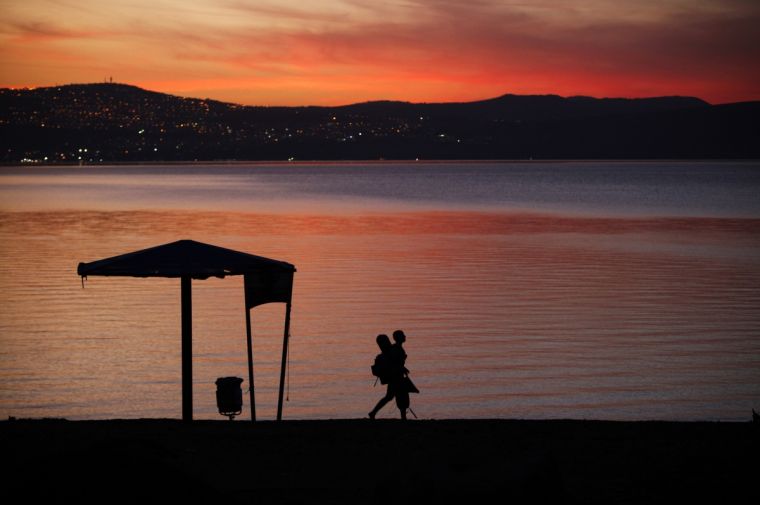Tales of co-existence from Israel: how music is the food of love for Christians, Muslims and Jews
When I lived in Haifa and worked on translations, I often turned on the Israeli equivalent of Classic FM, because on Sundays it played nothing but Church music bearing in mind all those Christians in Israel who didn't work on a Sunday.
And from this channel I became further acquainted with the greatest music in the world, written by Bach, Handel, Mozart, Haydn, Beethoven, Schubert and others.
The music was always announced in hushed and reverential tones in truly beautiful Hebrew by the female Israeli radio announcer, much as we would announce the birth or death of a royal baby circa 1950.
And believe me, this music helped me produce the very best work I could from French, German and Hebrew into English on the Bahai Temple, Freudian theory, the Tel Aviv stock exchange, medieval Arabic thought, the latest on medicine at Beer Sheva University of the Negev, and much more.

I was reminded of those days when news broke that the Australian rock legend, Nick Cave, had played a concert to massive audiences last night. This was the headline verdict on Cave's concert in the left-of-centre Haaretz newspaper: 'Nick Cave Hits New Heights in Wondrous Tel Aviv Concert'.
Exactly 10 years ago, I met a great English journalist (also a translator) with the London Times in Jerusalem, James Hider. He invited me to lunch at Ima restuarant and picked my brain. He wanted to know about the biblical concept of Amalek and also about some genetic research currently underway in Israeli hospitals. I said I would help on both counts and did.
One of his very best articles was about the Paul McCartney concert at Yarkon Park Tel Aviv in September 2008.
This was about the time that the Church of Scotland School in Jaffa invited me in to consider teaching English there two days a week, staying overnight from Haifa in my daughter's flat in adjacent Tel Aviv.
I took one bus, one train and two more buses to arrive at my venue, where they told me that the English vacancy had gone and perused my CV.
'Ah! We see that you were accepted to study at the Royal Northern College of Music'. 'Yes', I said, 'but that was 40 years ago when I was 15.' 'No problem at all: you will start music as a subject here.' 'But I am not qualified.' 'You will be.'
So, I embarked on my new career (apart from the translations, interfaith work, teaching in Haifa and other pursuits), and spent Mondays and Tuesdays in Jaffa, trying to discipline over-excited kids aged from 2 until 18.
To create order, I did three things: started a choir with music from Paul Simon and The Beatles, played Glen Miller to soothe them, and asked them to perform on the keyboard themselves. During Ramadan, I told them I didn't expect them to sing and they were grateful.
To the youngest I taught the merits of silence. 'Just listen' I said, 'And you will hear various sounds' – and sometimes it worked.
But this job led to other things. The clientele included the offspring of embassy staff as well as Muslim and Christian children from Jaffa (not forgetting the odd Jew from Tel Aviv) and I had to prepare the assemblies as well as assist in the teaching of Bible (we stuck mostly to the book of Ruth).
The Palestinian Anglican chaplain from Ramle and I worked together. His talks at assembly, always in English, were fabulous and usually about Jesus being a 'fisher of men'.
Last night, I also looked up the youngest ever Russian conductor, Leonti Wolf, from Siberia, who emigrated to Israel and took me on as a second soprano in the Haifa Technion Choir. He is the only person in the world who has ever told me to open my mouth more and let rip. What a genius!
Here he is, talking in Hebrew about his early life in Siberia, his first violin (kinor in Hebrew, also the word for a harp, which is what the Sea of Galilee is shaped like and named after in Hebrew: the Lake 'Kinneret') and the person who introduced us to the wonderful Argentinian Navidad Nuestraby Ariel Ramirez which we performed at Chanukah 2007, exactly 10 years ago.

And here is my favourite Pilgrimage section of the piece, depicting Joseph and Mary struggling through the thorns and thistles of the pampas to their final destination.
This was an Israeli choir, largely made up of Russians and Ukrainians (my singing partner was an engineering student from Siberia, who also helped with the Russian of Borodin). She wanted to learn English – i.e. Shakespeare sonnets - while I wanted to brush up on my school Russian, i.e. basic grammar.
Before the performance, Leonti handed out chocolate Father Christmases to the largely Jewish assembly, which had been stamped as kosher by the rabbi in Hadar. Be-kippahed rabbis ate without another thought.
We performed with the Haifa Symphony Orchestra, which was as integrated as any orchestra established by Daniel Barenboim, but in the normal understated way of the Haifans. And when the orchestra performed Elgar's Cello Concerto, I burst into tears.
The Anglican Bishop of Jerusalem, Suheil, had asked me to teach Biblical Hebrew to his staff at St George's Cathedral, and later employed a Jerusalemite to teach modern Hebrew (Ivrit). He also showed an interest in attending a Shul service in Jerusalem.
He invited me to the Christmas concert at St George's, where a wonderful choir rose to the occasion.
But most memorable of my musical experiences was when I was asked to join the Carmel Haifan choir as a second soprano and ended up becoming their pianist in a rendition of Mendelssohn's sublime Elijah, based on that prophet's work on the hilltops of Haifa (but first performed in Birmingham, UK), when we battled on even through the numerous electric storms and power cuts:
Yes, truly, 'G-d watching over Israel neither slumbers nor sleeps'.
And the musical performances by Paul McCartney and Nick Cave and others who love and admire the Jewish people are also proof of this.
Dr Irene Lancaster is a Jewish academic, author and translator who has established university courses on Jewish history, Jewish studies and the Hebrew Bible. She lives in Greater Manchester and is chair of the Broughton Park Dialogue Group which just celebrated its ninth anniversary.











